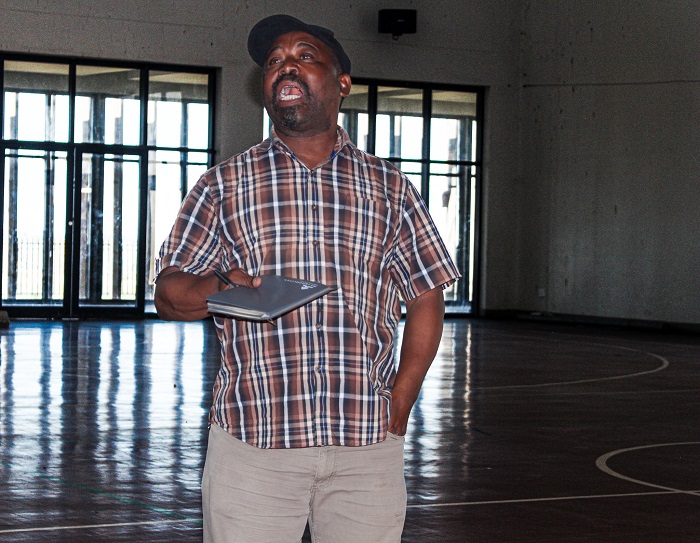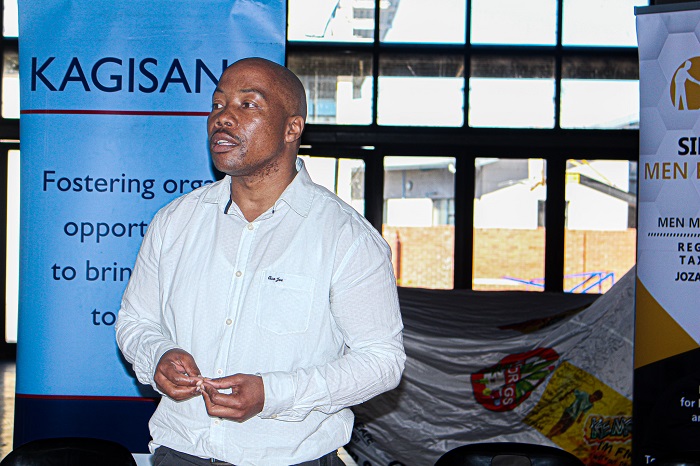By Sibabalwe Tame
The Singamadoda Men Empowerment Spaces held an anti-Gender-Based Violence programme on 30 August at the Indoor Sports Centre, in Joza, Makhanda.
As an organisation founded in 2017 with a vision to develop care for men for better lives, better futures, and positive communities, the founder of Singamadoda Men Empowerment Spaces, Simo “Mawawa” Ndyoko, said, “We wanted to equip the community, especially grown men because most of the time it is them who are usually involved in GBV”.
Ndyoko added that “We are not going to stop, because each and every day there is always GBV happening, and we are currently busy trying to stop that”.
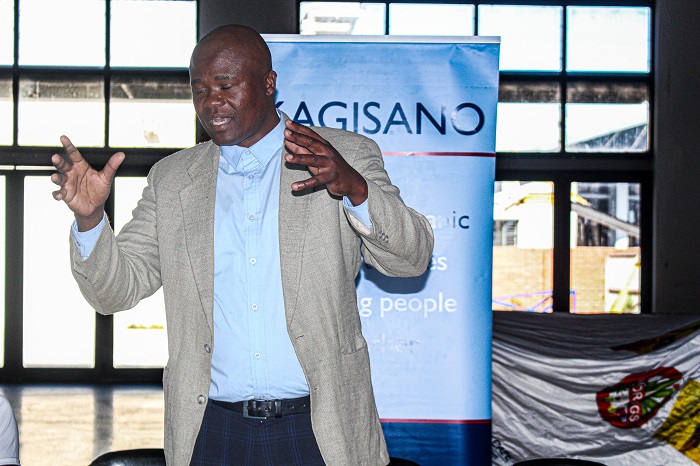
According to a social worker from Social Development, Bulelani Ngatsha, close to 950 women and close to 250 children were killed in May 2023 alone. “The perpetrators who commit these offences of killing wives and children are men,” said Ngatsha.
The relation between substance abuse and gender-based violence.
The Eastern Cape Liquor Board said they also played a role in tackling GBV by starting an Anti-Alcohol Abuse Campaign in 2021. According to Mthunzi Ngono, the campaign’s project facilitator, the campaign was started after a final-year Medicine student at Walter Sisulu University in Mthatha was stabbed by a friend under the influence of alcohol. “Eastern Cape Liquor Board saw the need to start this campaign in the institutions of higher learning,” said Ngono.
Mthunzi said that there was a relationship between substance abuse and gender-based violence in South Africa, as the statistics linking alcohol consumption and intimate partner violence show that 45% of men and 20% of women were drinking during altercations.
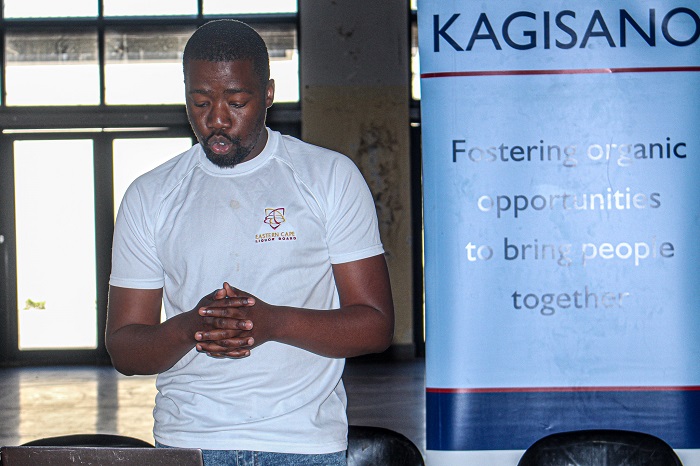
The justice system fails GBV survivors
“We have a justice system that does not favor us as women. I know cases here in Makhanda whereby a rape victim would go to the police station to open a rape case, carrying all the evidence, but you will wait for five years to get results from the labs,” said Siyamthanda Dyantyi, a local anti-GBV activist.
Even when perpetrators were arrested and brought to court, the cases would simply be dismissed, and “the perpetrators would walk free just because there is not enough evidence”, Dyantyi added.
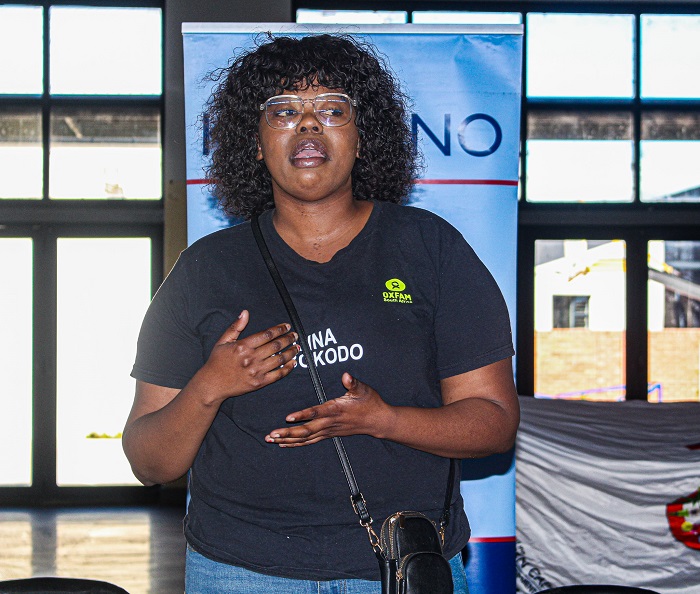
“Our fight as women is not only about men, but also the justice system in South Africa,” she added.
Jongi Hoza, head of the secretariat of the Eastern Cape Men’s Movement and program manager at Empilisweni HIV/AIDS Care Centre, also spoke at the event. “We need each other for co-existence. When we talk about gender equality, we talk about building homes”, Hoza said.
He added that he was prioritising a programme in East London called ‘The Young Gentlemen’s Club’. “The boys in the club came up with the name as it symbolises the way gentlemen dress, their neatness, and the way a gentleman treats himself and others,” said Jongi, adding that it is going very well.
